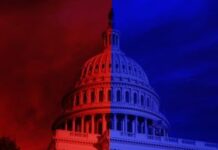
After a year of heavy layoffs, podcast restructuring, and price raising, Spotify reported better-than-expected fiscal Q1 2024 earnings, achieving a profit as part of its ongoing “efficiency” strategy. For the quarter, Spotify posted operating income of $179 million.
This was a significant change from a loss in the previous year. The company reported net income of $210 million, with earnings per share of €0.97, ahead of analyst expectations.
Revenue reached $3.88 billion, marking a 20% increase year-over-year and surpassing forecasts. Despite a slight miss on total monthly active users with 615 million against a forecast of 618 million, this still represented a 19% increase from the previous year. Premium subscribers met expectations at 239 million, a 14% year-over-year increase.
The audio giant forecasts even stronger second-quarter operating income of €250 million, surpassing Wall Street expectations, with anticipated revenues of €3.8 billion. This comes as Spotify plans a second round of price increases in markets including the UK, Australia, and Pakistan, with US price hikes expected later in the year.
In line with its profitability goals, Spotify revamped its podcast strategy, focusing on broader distribution rather than exclusivity. This included making Joe Rogan’s podcast available on other platforms while retaining ad sales responsibilities, and similar arrangements for Alex Cooper’s Call Her Daddy, with Spotify keeping exclusive rights to the video content.
In December, Spotify implemented a substantial reduction in its workforce, cutting 1,500 jobs or 17% of its employees, in a move aimed at boosting efficiency and profitability.
Despite the initial investor optimism and a subsequent 60% increase in share price since the layoffs, Spotify CEO Daniel Ek acknowledged the challenges these cuts imposed on the company’s operations. The transition period saw Spotify grappling with operational disruptions, which Ek admitted had a greater impact than anticipated.
Ek commented, “It took us some time to find our footing, but more than four months into this transition, I think we’re back on track and I expect to continue improving on our execution throughout the year getting us to an even better place than we’ve ever been.”









